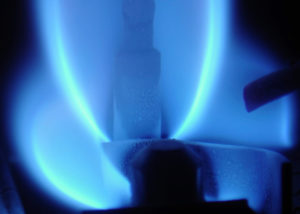Time to Prepare Your Heating System
By CNA Equipment Breakdown
Late autumn to early winter is no time to discover problems with the boiler heating system in your building. In order to have a safe and reliable heating system, preseason cleaning, maintenance and inspection should be completed during the late summer – early fall. Although this time of the year is usually warm and pleasant, unexpected and necessary repairs may take weeks to complete.

Use Professionals
Although general cleaning of the boiler can be performed by in-house staff, trained and licensed persons should complete all system maintenance, repairs, and testing of controls and safety devices. If using a contractor, verify the business is adequately insured and request a certificate of insurance.
Know the Manufacturer’s Recommendations
Building heating systems that utilize boilers are either steam or hot water systems. Controls and safety devices differ depending on the type of system. Maintenance and testing requirements also vary. Following the boiler manufacturer’s recommended maintenance scope and schedule is mandatory in many jurisdictions.
Commonwealth’s Requirements
In the Commonwealth of Massachusetts, commissioned inspectors are responsible for performing the following mandated inspections and filing the report of inspection for the issuance or withholding of the Certificate of Inspection:
- Steel and cast-iron boilers used for steam-heating:
- One annual internal inspection;
- One annual external inspection with boiler in service at approximately a six-month interval from the internal inspection.
- Hot-water heating boilers:
- One inspection annually;
- One internal inspection every three years where construction permits.
- The lack or improper maintenance of heating systems can lead to frozen and burst pipes, fire, boiler explosions, carbon monoxide poisoning and, in extreme cases, death.
While preparing your boiler for the heating season, check the carbon monoxide detector, smoke detector, fire detection systems and extinguishers for proper operation and fitness for service.
Always keep a clear zone around all boilers and hot water heaters. Avoid using the boiler room as a storage space. Do not keep combustible or flammable materials in the room. Maintain and test installed emergency lighting.
Following is a list of tasks that your technician should be performing:
- Test and log the operation of all controls and safety devices, including low water fuel cut-off devices on steam boilers and all relief valves.
- Clean applicable heat exchange surfaces.
- Change system filters. This could be air or fuel system filters.
- Lubricate where required.
- Verify proper combustion. Flue gas analysis requires a trained technician with specialized equipment.
- Inspect all flue gas containing components, including the chimney.
- Inspect the electrical service for the equipment, including equipment grounding. Amperage draw should be noted for motors and/or heaters where applicable.
- Fuel storage and delivery systems should be inspected. If you store fuel oil, it should be tested for the presence of water contamination.
- Where applicable, boiler feed system piping, tanks and pumps should be inspected.
- Humidification systems should be inspected.
- Fresh air intakes or louvers should be checked for general condition, especially blockage.
Last but not least, have your heating system checked weekly. Logs are required in many jurisdictions. Any testing or inspection work should be documented and a history maintained.
A correctly maintained and operated boiler heating system is inherently safer and more reliable than a poorly maintained one.
CNA supports the Roman Catholic Archdiocese of Boston by providing Equipment Breakdown Insurance coverages, performing the Commonwealth’s mandated inspections and providing SORCE training for all churches and institutions.
If you have questions or desire further information, contact Steve Kapnis at 978-536-5116 or Email.

